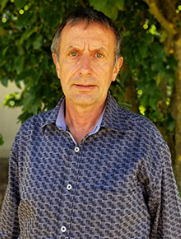Rural health in a warming world
Anna Robb
21 March 2023, 5:00 PM
 Rural healthcare services were challenged when Cyclone Gabrielle hit. A rural GP has commented on climate change and rural health
Rural healthcare services were challenged when Cyclone Gabrielle hit. A rural GP has commented on climate change and rural healthA Dunstan Hospital rural health expert says health inequities in many rural communities will be exacerbated by climate change events.
The Science Media Centre (SMC) issued a statement from experts on how rural health services will cope as climate change progresses.
University of Otago associate dean rural health professor and rural doctor at Dunstan Hospital Garry Nixon, together with Dr Margaret Fielding Wairora Hospital clinical lead and GP) said more frequent extreme weather events will happen as climate change progresses.
The pair said plans need to be made for rural health that are sustainable and resilient in this new environment.

Professor Garry Nixon. PHOTO: University of Otago
“The burden of climate change events isn’t falling evenly,” they said.
“This will exacerbate the existing health disparities faced by many of these communities, often with large Māori populations, resulting from levels of socioeconomic deprivation and poor access to services.
“To cope health services need to be as decentralised as possible. Local rural health services can be all that is left for a community, often for prolonged periods.
“These services can be very responsive and adaptable, and can pivot rapidly to address immediate community needs; but they need to be resourced and empowered to do this.”
Resourcing is required, Garry said, as is maintaining and building existing services and using evolving technologies such as point of care laboratory testing and ultrasound.
He said challenges for isolated communities and health providers are often more about accessing routine care than emergency care.
“Local health services are on the ground and in the best place to take the lead during the disaster and recovery phases. Regional services… need to support them by responding to [local] priorities and meeting… requests for additional help.
“The breakdown in communication systems proved a major problem for local health services at all levels.”
Local rural health services will need to be consulted and included in the future back-up solutions.
“Major changes on where rural communities can most easily access secondary health services have been forced by the weather events,” Garry said.
Their usual hospital may no longer be the closest or most accessible. Specialist investigations and appointments will be disrupted, and a period of active catching up will follow.
“Catchment boundaries of hospitals need to be able to change temporarily or even permanently to accommodate this and everyone, communities and hospital staff need to be onboard with the changes.”
Cooperation between Waka Kotahi (New Zealand Transport Agency) and Te Whatu Ora (Health New Zealand) is needed to ensure the health system responds to roading network changes, Garry said.
Garry was awarded a Member of the New Zealand Order of Merit (MNZM) for services to rural health in 2016.
The SMC is an independent source of information for the media on all issues related to research, science, and innovation.






